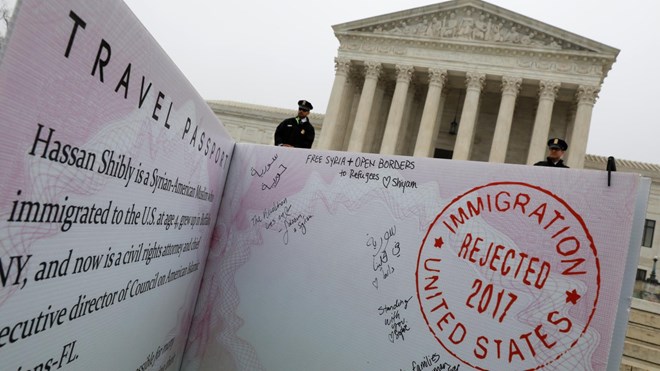
Wednesday September 1, 2021
By Annalisa Merelli

When US president Donald Trump imposed the so-called “Muslim ban” in 2017, limiting travel to the US for citizens of several majority-Muslim countries (Iran, Iraq, Libya, Somalia, Sudan, Syria, and Yemen), it encountered significant opposition. Among the fears was that it would disrupt the lives of Muslims—immigrants as well as citizens—who were already in the US.
A recent study, led by Elizabeth Samuels, a Brown University public health professor and published last month in the Journal of the American Medical Association, identified at least one way in which it did: Following the ban, visits to the emergency department of people born in Muslim-majority countries increased, and so did the number of diagnoses of conditions related to stress.
A rise in stress-related conditions among Muslims
Several studies have revealed the health of individuals can be impacted by seemingly unrelated public policies, as well as their social environment. Following the Muslim ban, for instance, a higher number of pre-term births occurred among Muslim communities in the US whose place of origin was covered by the travel ban. Similarly, researchers identified an increased incidence of anxiety, depression, and low birth weight in children of Muslims after the 9/11 attacks.
This latest study looked at changes in the health status of the Muslim population in the US after the ban using anonymized electronic health records. Although the data didn’t record the religion of the patients, they did mention their country of birth, allowing researchers to select the religious majority of the country as a proxy for their religious affiliation.
The study looked at more than 250,000 adults from the Minneapolis, Minnesota, area, comparing the data of immigrants from Muslim majority countries (both subject to the ban and otherwise) and US-born adults.
The study analyzed data on primary care and emergency department visits for the two groups for the year prior and following the ban, comparing the trends of ER visits and the diagnoses received. The visits were up for both groups, but the increase for Muslims was more significant, 3.4% more than what it would have been if the trend had followed the US-born population’s. The increase was more pronounced in the 60 days immediately following the ban, Samuels told Quartz.
It wasn’t just any visits, either. In particular, conditions related to stress increased. To identify such conditions, researchers relied on the consensus of physicians treating the groups subject to the study. The diagnoses included emergencies, such as heart attack or suicide attempts, and more chronic illnesses, such as hypertension, asthma, or complications from diabetes.
The researchers found that the incidence of stress-related diagnoses was nearly 5% higher among patients coming from Muslim countries than for other patients, suggesting an increase in stress in the population.
The authors note, however, that the ban was issued very soon after Trump’s inauguration, so the health outcomes on the Muslim population might have been exacerbated by a long xenophobic electoral campaign, too. Even considering this, Samuels said, the paper adds to the body of evidence that there are individual health consequences of non-health policy, and points to an area—the rise in stress-related conditions as a consequence of discrimination—to analyze further with more granular clinical data.